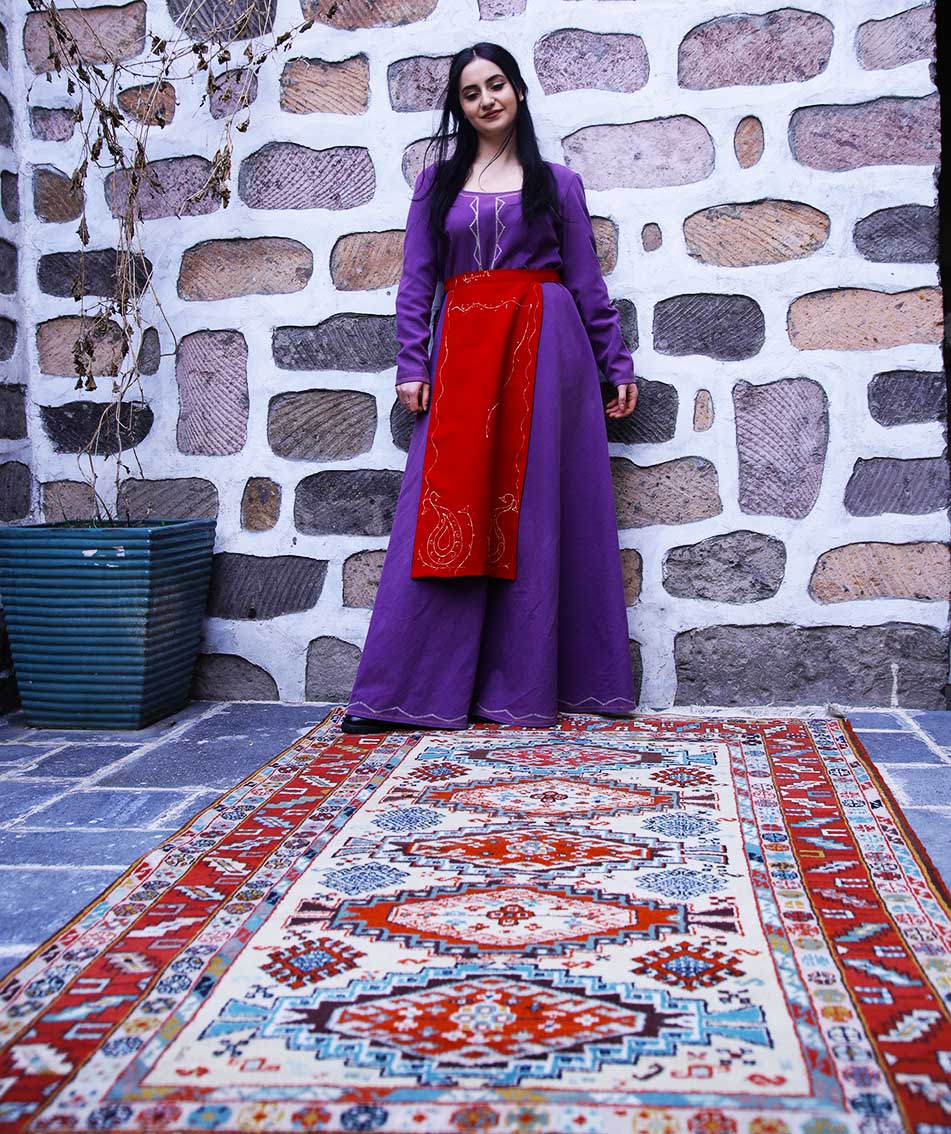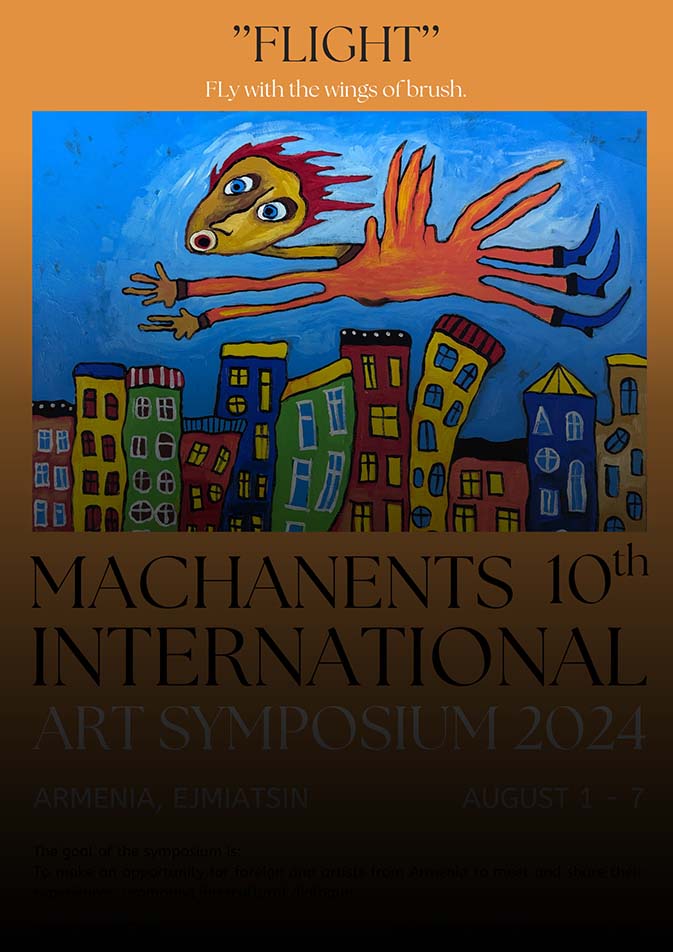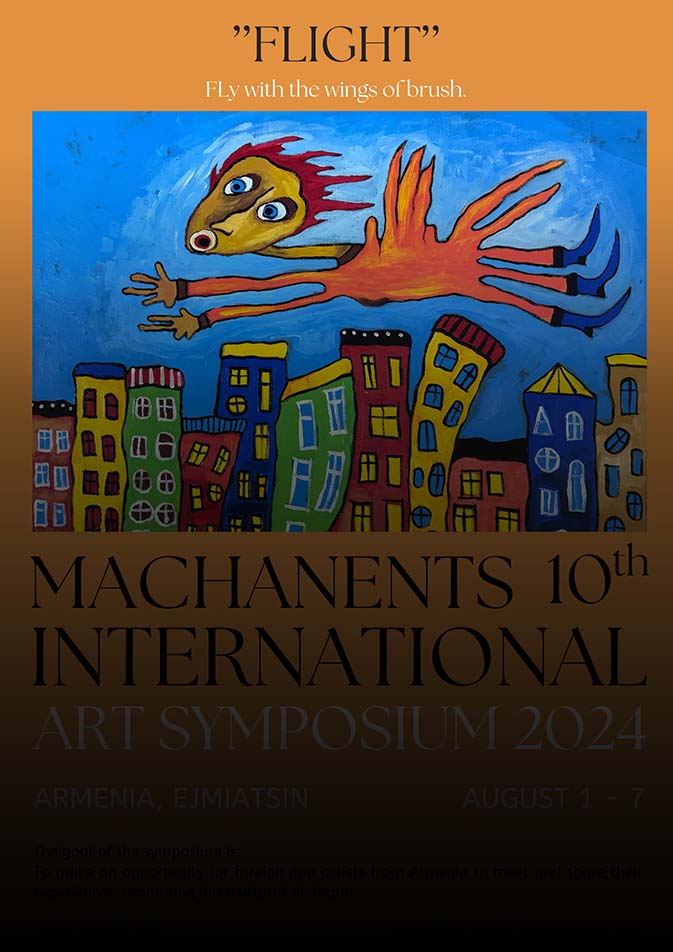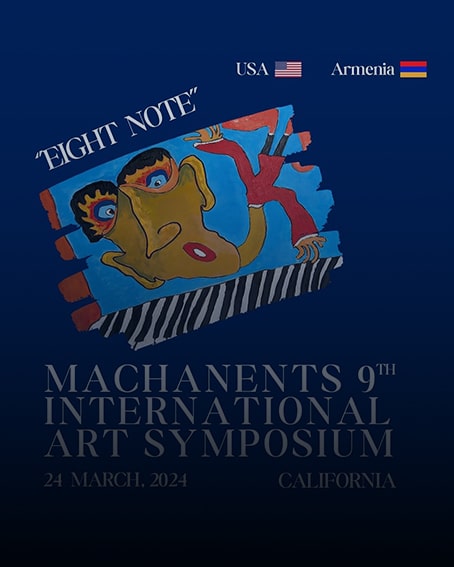Carpet weaving art has a very old history in Armenia. It is distinguished from the carpet art of other nations by its artistic composition, technique and creative thoughts, mainly expressing geometric type images.
The production of handmade carpets is a long, difficult, systematic, bee-like work. That is the reason why since ancient times, handmade carpets have been respected, honorable, appreciated, valuable and finally for use in eco-friendly and healthy living. According to studies, children in homes that kept historic carpets were healthier, because the carpet transmits vital energy. The carpet weaver transfers all his energy and heat to the carpet through connections and knots.
The carpet, more than any other art, has wonderfully managed to preserve the versatility of our religious beliefs. The carpet weaver intersects Christian and pagan concepts so ingeniously that it can be appropriated as a classic example of thought. In doing so, he unwittingly performs scientific work while enriching the human imagination.
Perhaps nowadays, carpet weaving, being the unequivocally preserver of national identity, as well as the bearer and transmitter of the people's spiritual energy, is one of the most neglected branches of national arts.
The carpet weaving workshop of Cross of Armenian Unity was founded in 1996 by the Jinishian Memorial Foundation and is still operating successfully today. During its operation, the workshop had 210 students, some of whom, having acquired the profession of carpet weaving, achieved success in this field and are able to provide some financial support to their families.
Cross of Armenian Unity implemented a number of projects for the receipt of eco-carpets in Dprabak, Dzoravank, Aygut, Getik, thereby contributing to the socialization of women and men.
The plans were to obtain an ecologically clean carpet from natural thread without the use of dyes. The wool for the eco-carpet was purchased mainly from Gegharkunik and Shirak regions. Because, according to laboratory studies in Austria, the wool of sheep grown in these areas contains a large amount of lanolin, which is very healthy for humans.
Obtaining wool thread is done by traditional methods - homemaking. The selection of the mentioned communities is due to the presence of elderly people in those communities who have the skill of spinning thread using a pulley and a wick. As well as the very high unemployment rate in those communities.
Eco carpets were used within the project. The carpet sketches were mainly based on Armenian rock paintings and abstract paintings.
The carpets were exhibited in sales, and the proceeds from the sales were used to create new carpets.

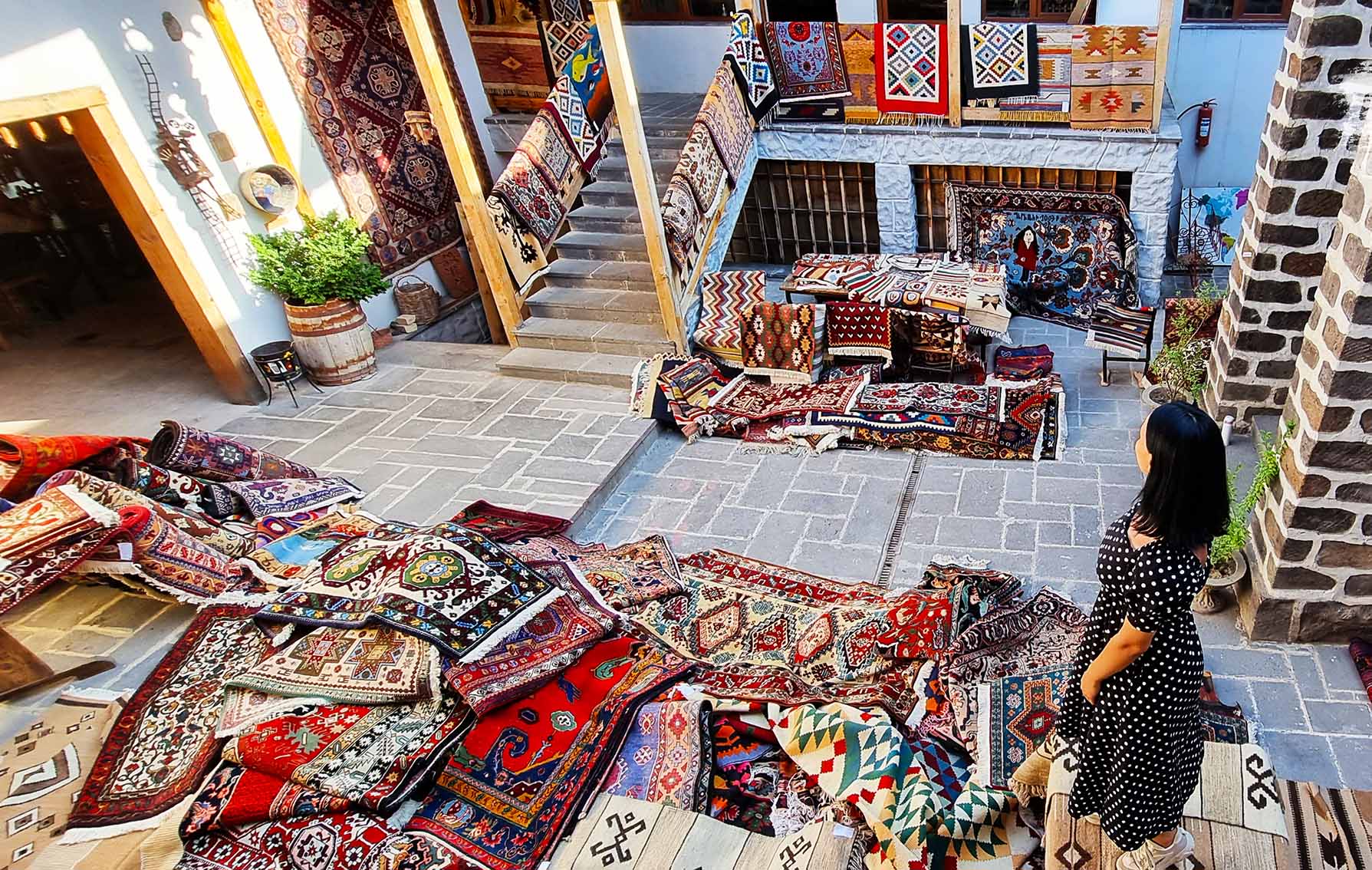
The projects implemented by Cross of Armenian Unity in the field of carpet weaving are:
1996 - Establishment of a carpet weaving workshop- Jinishian Memorial Foundation
2007 - Carpet weaving and painting training at Cross of Armenian Unity Art school - Jinishian Memorial Foundation
2010 - Socialization of the elderly and obtaining an eco-carpet from thread obtained by the traditional method - Armenian Caritas
2011 - Socialization of women through traditional crafts - Armenian Caritas
2012 - Creation of housework opportunities for women in Getik community - Armenian Caritas
2013 - Creation of housework opportunities for women in Dprabak community - Armenian Caritas, World Vision Armenia
 Shahumyan 36, 1101 Ejmiatsin, RA
Shahumyan 36, 1101 Ejmiatsin, RA
 +374 (98)73 80 77
+374 (98)73 80 77


